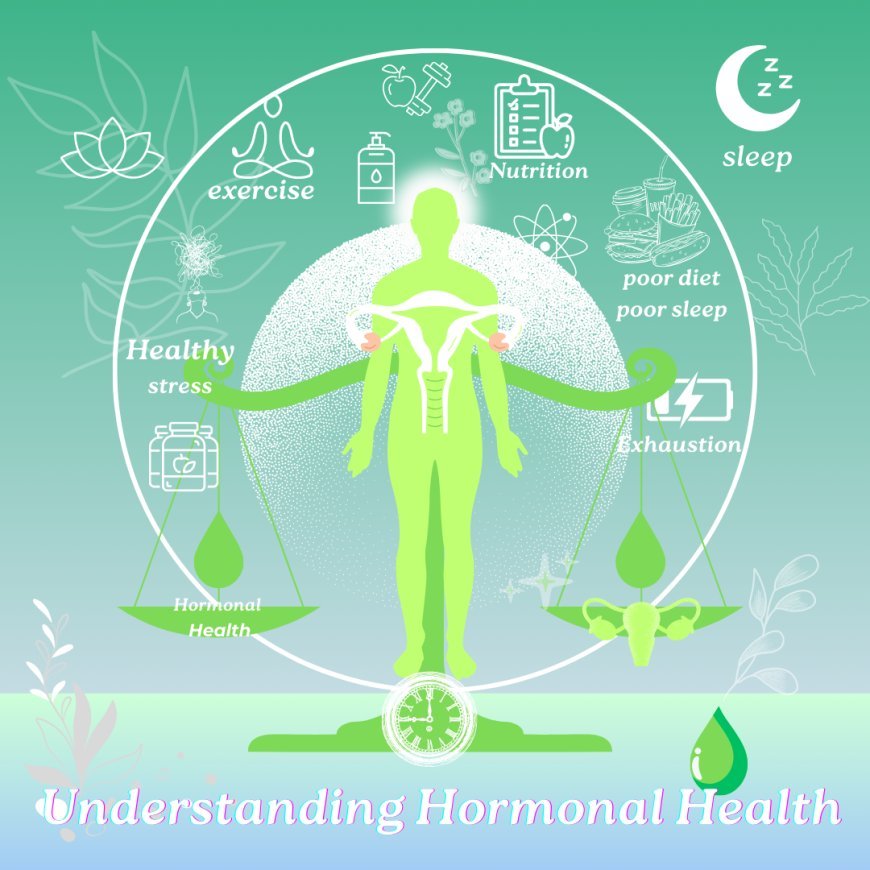Understanding Hormonal Health: Signs Your Body Needs Balance
Discover the key indicators of hormone imbalance and how to restore balance in your body. This blog delves at the critical role hormones play in general well-being and offers actionable advice for achieving balance through lifestyle adjustments and self-care activities.

Hormones, which act as chemical messengers in the body, have an impact on nearly every area of our physical and mental health. Hormones regulate sleep, emotion, metabolism, and reproductive health. What happens if they're not in sync? Understanding the symptoms of an imbalance and how to restore balance is essential for living a better, happier life.
What are hormones, and why are they important?
Hormones are produced by various glands throughout the body, including the thyroid, adrenal glands, and pancreas. They are required to manage critical functions including as growth, fertility, and energy. You feel fantastic when your hormones are regulated, but even minor imbalances can cause major problems in your life.
Signs That Your Body Needs Hormonal Balance
Recognizing the symptoms of hormone imbalance may allow you to address problems sooner.
Common symptoms include:
Mood Swings and Anxiety: Hormonal changes can lead to frequent irritability, anxiety, and sadness.
Fatigue: Persistent weariness after enough rest is a red flag.
Weight Changes: Unusual weight gain or decrease could suggest hormonal or metabolic issues.
Skin Issues: Hormonal imbalances can cause acne, dryness, and excess oil production.
Sleep Disruptions: Inability to fall or stay asleep is frequently a sign of hormonal imbalance.
Irregular Menstrual Cycles (in Women): Skipping or missing periods due to increased hormonal disturbance.
Causes of Hormone Imbalance
Hormonal imbalances have numerous causes, including:
Chronic stress: Cortisol overproduction disrupts the equilibrium of hormones.
Bad Diet: High sugar and processed food intake, as well as vitamin insufficiency, all have an impact on hormone production.
Minimal Exercise: A sedentary lifestyle may have a detrimental impact on hormonal health.
Sleeplessness: Sleep modulates hormone release, including insulin and cortisol.
Environmental Toxicology: Food, cosmetic, and environmental pollutants can alter and disrupt hormone systems.
Self-correction of hormone levels.
Healthy Diet: Concentrate on nutritious meals, healthy fats, and proteins. Include foods that control hormone levels in your diet, such as flaxseed, avocados, and leafy greens.
Exercises: Try one or more exercises that encourage hormonal balance, such as yoga, walking, or strength training.
Prioritize sleep: Sleep for 7-9 hours per night.
Manage Stress: Mindfulness, meditation, and deep breathing can all help to reduce stress.
Limited Toxin Exposure: Toxin intake can be reduced by using nontoxic cleaners and avoiding foods with preservatives and chemicals.
Schedule a Doctor Consultation: If your symptoms persist, consult a doctor because they could be the result of another medical condition.
Conclusion
Understanding one's hormonal health is critical for maintaining healthy overall functions. You may assist your body achieve balance by recognizing imbalances and adopting proactive, positive measures through lifestyle changes. Remember that even little modifications in nutrition, exercise, or stress management can significantly enhance your health. Own your health today—your body will thank you!
What's Your Reaction?














































































